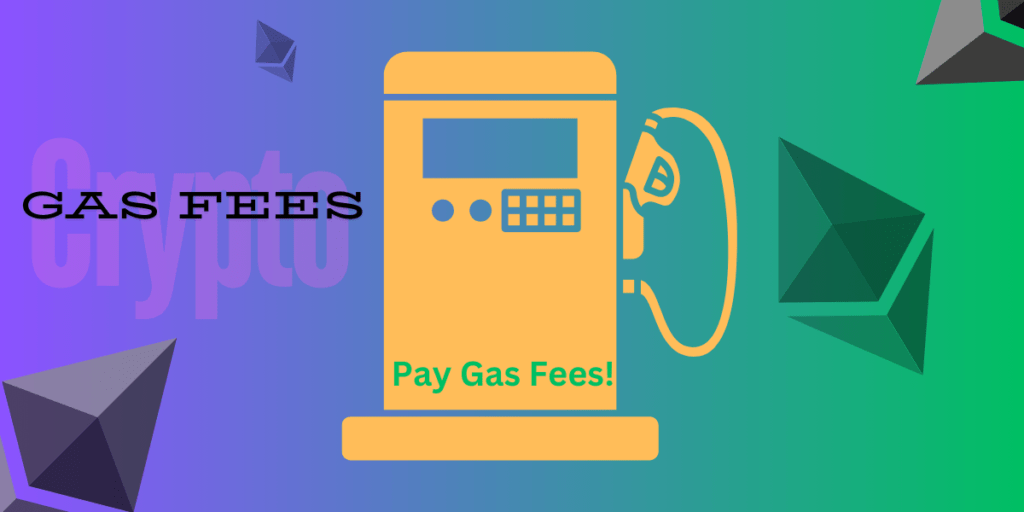Table of Contents
What is gas fees in crypto?
Gas fees in crypto refers to the cost of executing a transaction on a blockchain network. Consider Ethereum, the most popular blockchain network, for example. When you perform any transaction on the network you have to pay certain amount of gas fee for completing the transaction. This may be a transfer of Ethereum from one wallet address to another or interacting with smart contracts.

Purpose of Gas Fee
Gas fees paid by the users of blockchain network serves as a compensation for the validators who secure and maintain the network.
It is the validators who verify and validate a transaction on the network. So they need some rewards for their participation in blockchain transaction and this is where gas fee comes into the picture.
Amount of Gas fee
The amount of gas fee is not fixed. It varies as per network capacity and Demand/Supply in the crypto-market. During network congestions gas fees may increase and vice-versa.
Does Bitcoin have gas fee?
Bitcoin does not have a gas fee instead it has a transaction fee. Gas fee is associated with the Ethereum blockchain. Both can be said as cost of incurring a transaction on the network.
When you perform a transaction in Bitcoin you have to pay a transaction cost to the miners who validate your transaction. Like gas fee, bitcoin transaction fees also fluctuates as per network congestion and other factors in the market.
Thus in bitcoin network fees or miners fees is analogous to the gas fee in Ethereum.
Do know What is BASE in Crypto? It has shown some amazing volume in the recent days. Do check it out!
Why are crypto gas fees high?
Gas fee may be small at one time and high at other times. There are many factors, listed below, which affect gas fees:
- Network Congestion- Gas fees are usually high during the network congestion.
- High Demand- When there is high demand for transaction on the blockchain, it drives up the gas prices.
- Block Size- The size of block on a blockchain is limited. Thus validators/miners prioritize those transactions on the block which offer higher gas fees.
- Complexity of Smart Contracts- More complex contracts involve more computation, therefore, need additional fees.
- Users Bidding Price- Users set the price of their transaction. Miners choose the one with more price as compared to the lower ones. This is why a transaction remains unconfirmed for longer duration when a lower price is set for it.
- Miner’s Behavior- It is miners who decide which transactions to put in a block. They may do it on first come first serve basis or purely on the basis of higher gas fee.
- Miscellaneous Factors- These include external agents like news, market sentiments and higher interest rates, which may lead to higher gas fees.
Read some of the Popular trends in the crypto-market here:
- What are Real World Assets in Crypto? [Do not Miss].
- Top 10 AI Coins that may boom in the bull run.
- Attractive benefits of Ethereum ETF approval. [can’t afford to skip ETH]
- CATAMOTO: A new hype in the crypto meme world.
Frequently Asked Questions:
Which network has lowest gas fees?
Binance Smart Chain, Polygon (Matic) and Tron has comparatively much lower gas fees than Ethereum. Among them Tron has a very low fee. There are other networks as well, but these three are well known.
What crypto has zero gas fees?
Nano(XNO) and Iota (IOTA) offer transactions with zero fees. Other crypto which offer near zero gas fees are Bitgert (BRISE),Tron(TRX),Stellar Lumens(XLM), DigiByte (DGB), Ripple(XRP) and Bitcoin SV (BSV).
Which blockchain has 0 gas fees?
SKALE and Bitgert offer the blockchains with zero gas fees. But consider other factors as well like use cases, security and scalability as well while choosing a blockchain.
